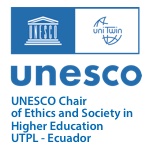A Pedagogical Model For Virtual Higher Education Focused On Collaborative Learning
Abstract
Collaborative learning has great potential in the field of higher education since it promotes the collaborative knowledge construction, as well as the development of skills related to interaction that result in more significant learning processes. Based on a conceptual review of this type of learning, this work explores, based on three specific experiences, how a pedagogical model for virtual higher education can integrate it and what its implications are. The study highlights among its conclusions the need for careful planning, the change of the teaching role and autonomy in the management of learning.
Downloads
References
Arancibia Herrera, Marcelo, Luis Cárcamo Ulloa, Paulo Contreras Contreras, Eliana Scheihing García, y Daniela Troncoso Vargas (2014). «Re-pensando el uso de las TIC en educación: reflexiones didácticas del uso de la web 2.0 en el aula escolar.» Arbor 190, no. 766: a122. https://doi.org/10.3989/arbor.2014.766n2014.
Casillas Martín, Sonia, Marcos Cabezas González, and Azucena Hernández Martín. 2017. «Construcción de conocimiento colaborativo mediado tecnológicamente: aportaciones teóricas desde el análisis de prácticas educativas.» Teoría de la Educación. Revista Interuniversitaria 29, no. 2: 61. https://doi.org/10.14201/teoredu2926186.
Pérez Echeverría, María del Puy, and Mar Mateos (2006). «El cambio de las concepciones de los alumnos sobre el aprendizaje.» En Nuevas formas de pensar la enseñanza y el aprendizaje. Las concepciones de profesores y alumnos, editado por Juan Ignacio Pozo, Nora Scheuer, María del Puy Pérez Echeverría, Mar Mateos, Elena Martín, and Montserrat de la Cruz. Barcelona: Editorial Graó. https://dialnet.unirioja.es/servlet/libro?codigo=9180.
Suárez, Cristóbal, and Begoña Gros (2012). Aprender en la red. Barcelona: Editorial UOC.
Copyright (c) 2019 © Analysis

This work is licensed under a Creative Commons Attribution-NonCommercial-NoDerivatives 4.0 International License.








